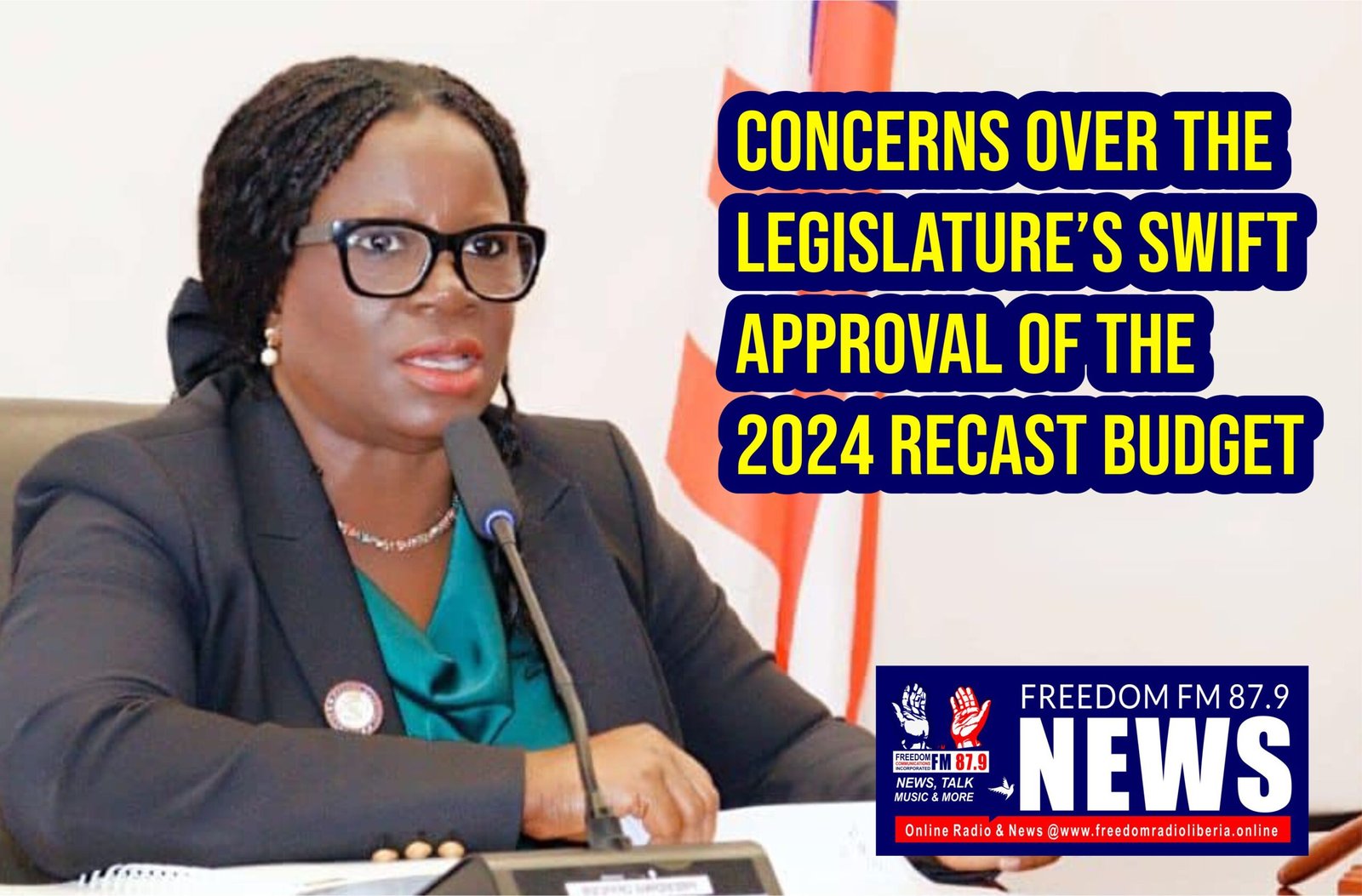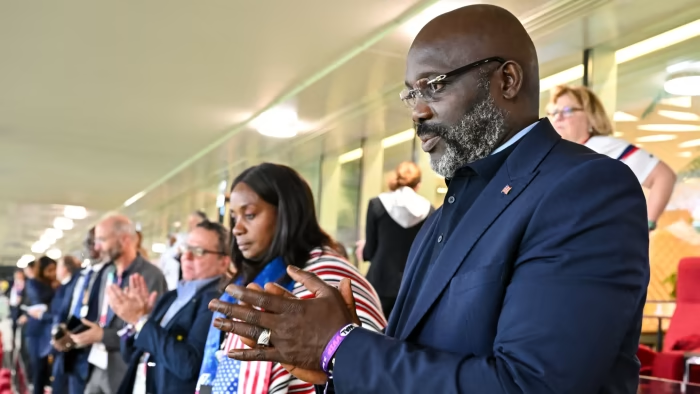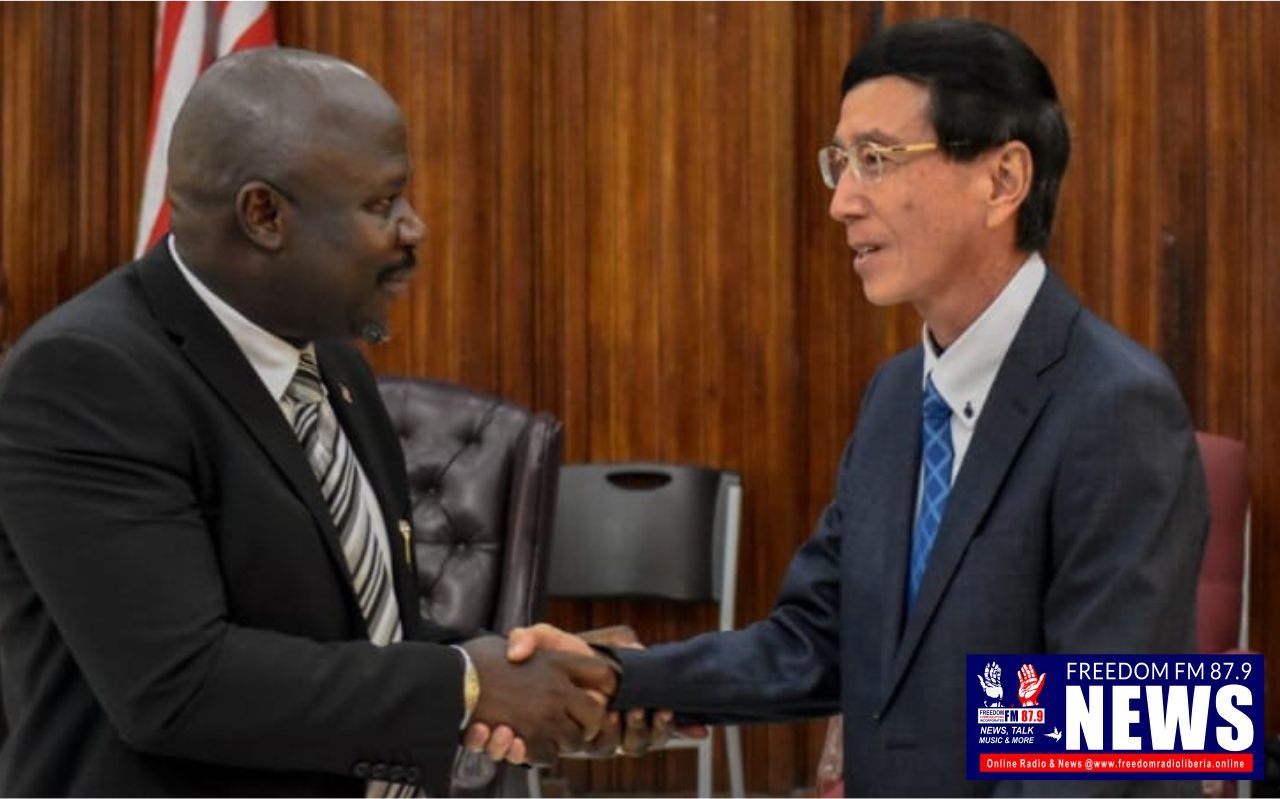FreedomNews:
In a move that sparked significant controversy, the Liberian Legislature swiftly approved the draft 2024 recast budget, securing a US$210 million credit expected to last 40 months. While proponents highlight the substantial benefits of this funding, critics argue that the Senate’s rapid passage of the budget overlooked critical scrutiny and transparency.
On September 25, the International Monetary Fund (IMF) Executive Board approved a 40-month arrangement under the Extended Credit Facility (ECF) for Liberia, amounting to SDR155 million (approximately US$210 million). This support is intended to help the government implement reforms to address macroeconomic imbalances and establish a foundation for growth driven by the private sector beyond the natural resources sector.
However, some Liberians point out that the current grant hinges on the passage of the national recast budget, raising concerns about the Legislature’s decision-making process. They argue that the positive outcomes touted by supporters may not fully materialize without thorough oversight and accountability.
The economic program supported by the 40-month ECF arrangement includes a comprehensive policy package to enhance fiscal sustainability and create space for investment. This will start with cutting unproductive spending and then focus on increasing domestic revenue. The goal is to mitigate debt vulnerability and promote robust, sustainable growth.
Key policies in the program include:
- Reducing unproductive spending.
- Introducing new tax measures, including a Value Added Tax (VAT), and streamlining extensive tax expenditures.
- Prioritizing public spending on basic infrastructure.
- Improving financial stability by addressing non-performing loans.
A primary objective of the reform program is to maintain and enhance social expenditures, particularly in education and health. After the Executive Board discussion, Mr. Bo Li, Deputy Managing Director and Acting Chair, stated: “Liberia’s economic vulnerability has intensified in recent years. Fiscal missteps have threatened public debt sustainability and led to a sharp decline in international reserves. Governance challenges remain. To tackle these issues, the new authorities, who assumed office in early 2024, have sought a 40-month arrangement under the Extended Credit Facility to support a comprehensive reform agenda. “The Liberian authorities are rightly prioritizing the restoration of fiscal credibility. They aim to cut unproductive spending while reallocating resources to public investment and safeguarding social expenditures.”
Despite these assurances, most Liberians remain skeptical. They emphasize the need for continued fiscal discipline and improved domestic revenue collection, including implementing the VAT and reducing excessive tax expenditures. Without these measures, they warn, the anticipated benefits of the IMF credit deal may fall short, leaving Liberia’s economic challenges unresolved.





